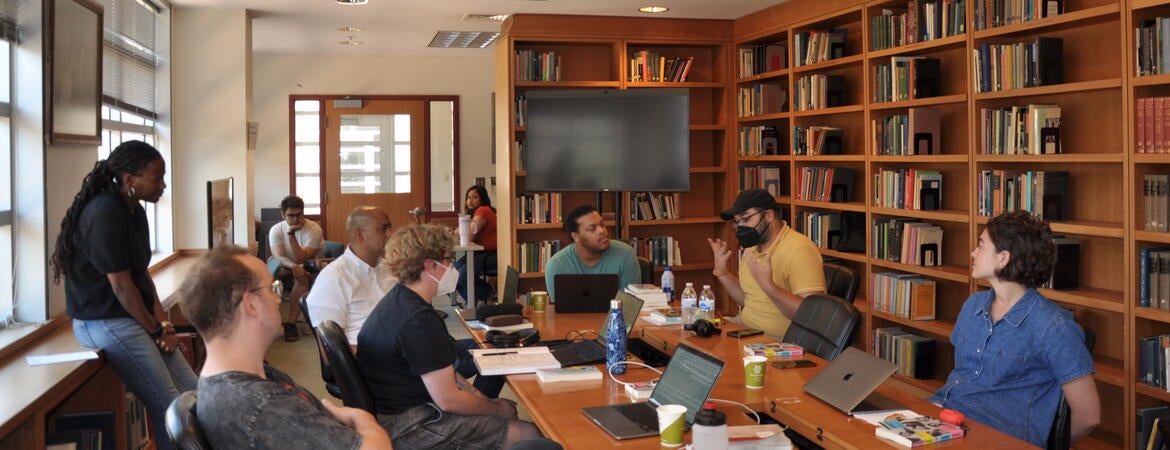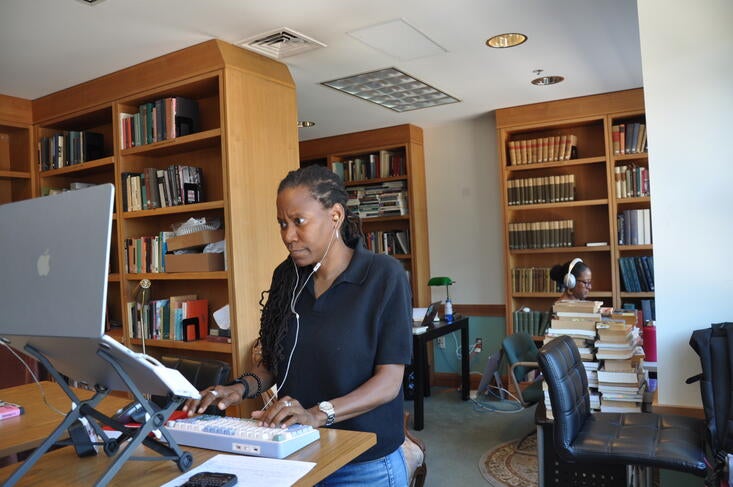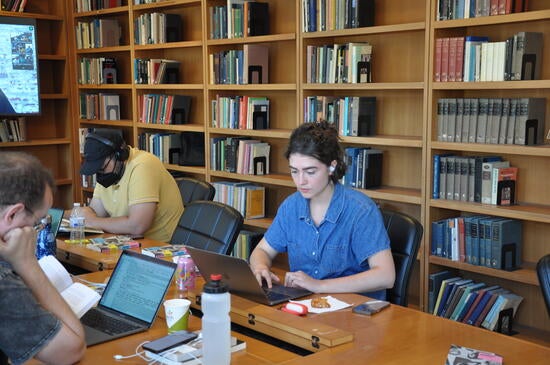Writing is often a solitary activity, but Myisha Cherry believes it doesn’t have to be. An associate professor of philosophy at UC Riverside, Cherry put that idea into practice with a summer workshop that gave writers a space to encourage each other.
Cherry invited faculty members and graduate students from different disciplines to meet weekly for a more than four-hour session where they alternated between writing and checking in on each other’s progress.
The six-week workshop, named DraftSpace, had its final meeting on Aug. 11. Cherry plans to bring it back next summer. It was organized by the Emotion and Society Lab, of which Cherry is director, and co-sponsored by the Department of Religion and the Health Humanities and Disability Justice Lab.
“Once you get in community and energy with other people you just take it to another level and that’s how I feel about the group when I go in on Mondays,” Cherry said. “I know it’s going to be the most fruitful time of the week because just the fact that I’m around other focused people, it puts me in a different kind of zone.”
The idea began informally. She and a colleague, Matthew King, a professor of religious studies, would often meet to write individually at the Center for Ideas and Society on Fridays. They began inviting their graduate students to write in the same space.
Cherry said they enjoyed the communal energy and decided to make it an official summer program. They put out a call for applicants, which quickly filled up. The group was capped at 16 participants to keep it intimate and manageable, with 11 graduate students and five faculty members.
Each session began at 9:30 a.m. with breakfast, conversation, and jazz playing in the background. Participants went around the room to check in on what would make a great day for each of them as a writer.
Cherry would then set 25-minute timer where they wrote quietly before stopping for a five-minute break. They continued that off and on until breaking for lunch at noon, returning afterwards for an hour-long deep work session. They wrapped up talking about how their day had gone.
The workshop wasn’t formatted to be instructional although guest writers Nic Buccola, author of "The Fire is Upon Us," and Joshua Bennett, author of "Owed" and "Spoken Word,” joined for the last two sessions and offered tips.
Much of it was about creating the right conditions for writing, getting to know each other, and providing practical and moral support, Cherry said.
“We decided to call it DraftSpace because it’s a space where we work on our drafts and whatever comes as a result of that is whatever happens,” she said. “It’s not perfection space, it’s a space for us to get the stuff written down that’s not yet perfect but it’s on its way toward perfection.”
The location was just as important for Cherry in setting a mood. The group met at the English department library at the Humanities Building, which has large windows that provide plenty of sunlight, wooden bookcases filled with old bound volumes, and seating at a large table, leather lounge chairs, and corner nooks. The workshop supplied participants with breakfast, lunch, and coffee.
Elise Johnston, a graduate student in philosophy, used the workshop to revamp a research paper on anger that will be the focus of her upcoming third year project.
“It helps to have this community of people you see every Monday,” she said. “It’s been really good at motivating me to get stuff done.”
Writers from different disciplines working on various types of projects from books to dissertations to qualifying papers participated.
Although she’s written research papers, Kalina Michalska, an associate professor of psychology, found the idea of writing a book daunting. She said the workshop gave her the support and tools to write a book proposal.
“This is an amazing workshop,” Michalska said. “This is the best thing that’s happened to me all summer.”
Jade Sasser, an associate professor of gender and sexuality studies and the author of two books, joined the group figuring it would jumpstart her productivity for the week. Typically, when writing alone at home she’d feel tired at the end of the day. The workshop had the opposite effect on Sasser who began the first two chapters of her new book.
“Every week when I leave, I’m excited and engaged,” Sasser said. “Often I’ll go to a coffee shop or home and keep writing.”
“The fact that I’m now excited about this book and writing it every day, that’s huge,” she added.






